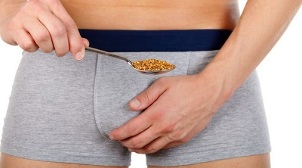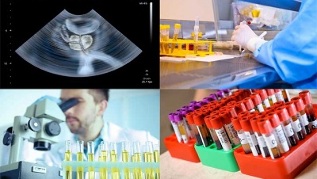
Prostatitis is one of the most common urological diseases in men.
According to WHO research, at least 30% of men between the ages of 20 and 50 suffer from this disease, and this insidious disease is increasingly affecting young people every year. Inflammation of this organ has been recorded even in children aged 15-16 years.
Causes of chronic prostatitis
The disease itself is acute and chronic. Chronic prostatitis develops through premature or ineffective treatment of acute prostatitis. Unfortunately, in the chronic form of prostatitis, one cannot expect complete recovery.
Due to the development of the disease, a distinction is also made between congestive (congestive) and infectious prostatitis.
Congestive prostatitis is associated with circulatory disorders in the pelvic area and stagnation of prostate secretions. Poor permeability and regular accumulation of blood in this area over time leads to the formation of foci of inflammation. As a result, the prostate gland is deformed, which in turn has a negative effect on neighboring organs.
An enlarged organ can constrict the urinary tract, disrupt a person's urinary function, and also compress the bladder, causing a regular urge to urinate. The development of prostate congestion is most often influenced by a sedentary, sedentary lifestyle. Bad habits and obesity also increase the likelihood of the disease.
The cause of infectious diseases is much more difficult to determine than those of congestive disease because the disease can develop on the basis of many venereal and fungal diseases. The infection, which enters a person through sexual contact, spreads throughout the body, but the first route is the prostate, where most of the pathogens accumulate. Over time, the growth of bacteria in this organ leads to inflammation and then to the formation of a kind of purulent nodule (scars remain even after healing).
The infection does not stop in the prostate, some bacteria move through the urinary tract, enter the bladder and kidneys, leading to regular urination.
However, infectious prostatitis is not always the result of sexually transmitted diseases. There are thousands of bacteria and microorganisms in the human body that regularly come from the world around us. Immunity easily copes with most of them, unless, of course, it is weakened by the negative effects of smoking, alcohol, constant stress, and neuroses. In such cases, the immune system is unable to fully regulate the development of bacteria or fungi, resulting in their uncontrolled growth and ultimately affecting the prostate gland.
Symptoms of chronic prostatitis
The first signs of chronic prostatitis first appear in regular urination stimuli and discomfort in the perineum, similar to pain. This is especially noticeable when you lightly press on the lower abdomen or anus.
Uneven urine flow is another symptom of chronic prostatitis. Spraying in different directions indicates a deformation of the muscle that should block the urinary tract (the muscle is located at the base of the prostate gland).
Radiation weakness is also a negative sign, suggesting more of an infectious nature of disease development in which several organs of the urogenital system are involved simultaneously. In some cases, there are problems with an erection, but more often they result from a person’s difficult mental condition.
Disease Diagnostics
In the first stage of prostatitis, the diagnosis is the same whether it is normal or chronic, infectious or stagnant. Treatment is most often performed by andrologists (in some cases urologists).

After consultation and internal examination, the doctor will issue a referral for the examinations:
- Smear.Collection is performed using a special probe that is placed in the patient's urethra (analysis allows you to find out what bacteria are present in the patient's urinary tract and in what amount). You should refrain from urinating for about 4 hours before performing the test.
- Analysis of prostate juice.The structure of the prostate gland is porous, with inflammation some parts of this organ are simply blocked. Although the inflammatory process is in full swing in them, regular examinations show nothing. This is where the analysis of the secret (prostate juice) helps. The doctor massages the prostate through the anus, thereby squeezing the discharge from the inflamed areas and then collecting it from the urethra.
- Urine test.Usually given after anointing, it allows you to learn about the pathology of the bladder and kidneys.
- Blood test- an infection is being tested.
- Ultrasound- examination of the prostate, bladder and kidneys.
Treatment of chronic prostatitis in men
After all analyzes are completed, the andrologist will continue treatment. In the case of congestive prostatitis, treatment is simpler. As a general rule, it consists of taking antibiotics and immunosuppressive drugs. The inflammation is removed with suppositories that must be inserted into the anus.
In the case of infectious prostatitis, everything is much more complicated, some tests need to be repeated for a more accurate diagnosis. Treatment is prescribed depending on the severity of the infection. Most often drips and antibiotics. The second step is immune correction and removal of toxins from the body. Prostate massage and physiotherapy (electrophoresis and magnetotherapy) are used in combination with medication.
The insidiousness of infectious prostatitis lies in the fact that with a supposedly complete cure, some of the pathogens still remain in the body and multiply over time, triggering inflammation of the prostate gland again. To prevent this, it is recommended that tests be repeated regularly and that a doctor be examined.
Even after complete recovery, the patient often complains of discomfort in the perineal region and frequent urination to urinate. This situation is not uncommon. The fact that even after the inflammatory process is removed, scars remain on the organ that interfere with its normal functioning. To overcome this problem, there are a number of drugs (suppositories with enzymes) that aim to resorb scars.
Prevention of chronic prostatitis
The goal of treating chronic prostatitis is to prolong remission and maximize the timely suppression of new inflammatory processes. In order to achieve long-term remission and thus avoid regular hospital visits, you need to radically change your lifestyle.
Under no circumstances should you get cold under the circumstances. Any slight drop in temperature can cause aggravation. It is quite cold to take a bus or sit in a draft. If possible, avoid sitting or warming up at least every hour for five minutes, saying goodbye to all bad habits:Smoking and alcohol are strictly forbidden!
It is also important to follow a special diet for chronic prostatitis. It is not recommended to consume smoked meats, overly fatty foods, high carbonated drinks and certain types of spices (hot spices).

Include in your diet:
- chicken;
- fish;
- fermented dairy products (cottage cheese, kefir, sour cream, low fat);
- vegetables;
- fruits;
- Honey.
The use of pumpkin seeds has a very positive effect on the prostate gland.
If you have been diagnosed with chronic prostatitis, don't be depressed! Yes, the disease is quite complex, but if you follow all the recommendations of your doctor and lead a healthy lifestyle, the pain and constant discomfort will not bother you for long. Careful care of your health and regular examination by an andrologist will allow you to live a full, colorful life!
























